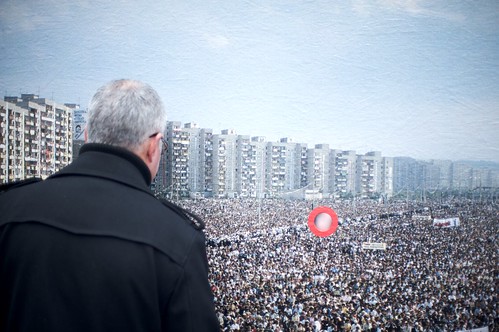1989 in fiction: a story that is not a story
By Sean L Hanley, on 17 November 2012
Tim Beasley-Murray on a story that slips under the radar of history

Photo: Gribsche (Rob Sinclair). Creative Commons license via Flickr
Peter Pišťanek’s Rivers of Babylon is the best-selling Slovak novel of all time. It tells the story of Rácz, a peasant from the Hungarian- speaking countryside, who arrives in Bratislava in Autumn 1989 and finds a job stoking up the boilers of the city’s top hotel. With a combination of priapic brutality, Nietzschean will-to-power, and control of the heating in a freezing winter, he rises with meteoric speed to become, by the summer 1990, the head of a criminal empire, with the Hotel Ambassador, the city and its politicians in his pocket.
This riotous and irrepressible novel is a combination of things: a video-nasty subversion of the Bildungsroman; a vicious satire of (Slovak) notions of the ethnic and moral purity of the countryside and the corruption and vice of the city (after all, it is Rácz who corrupts the city and not the other way round); and, with its cast of ballet-dancers-turned-prostitutes, intellectuals-turned-pornographers, secret policemen-turned-mafiosi and so forth, a Rabelaisian carnival of the birth of wild-East capitalism.
One of the most remarkable things about this remarkable book, however, is what it does not portray: Rácz meteoric rise coincides exactly with the period that sees the fall of the Berlin Wall, mass demonstrations in November against the Communist regime in Prague and Bratislava, the resignation of the Presidium of the Czechoslovak Communist Party and the election of Václav Havel to the presidency at the end of December, and finally, in June, the first free elections in Czechoslovakia since 1946. None of this appears in the novel.
 Close
Close

